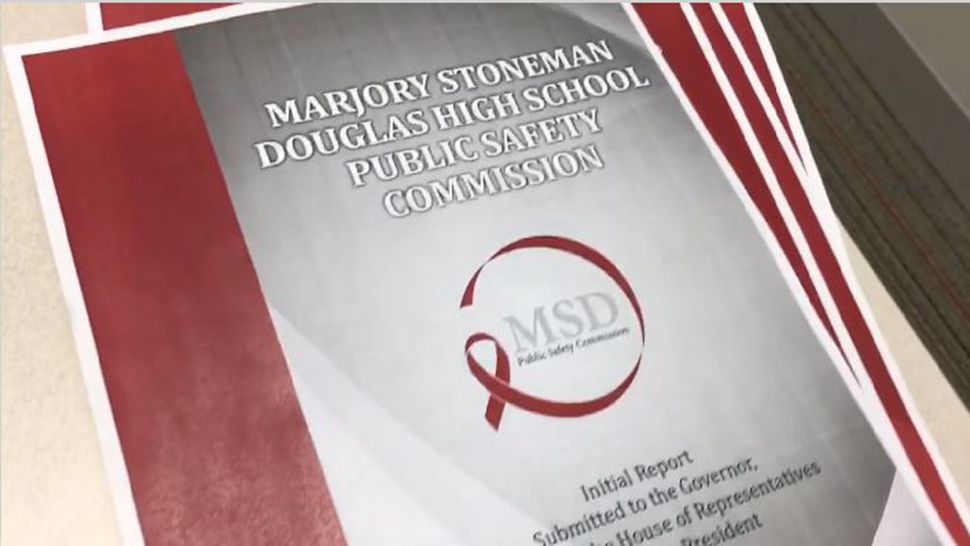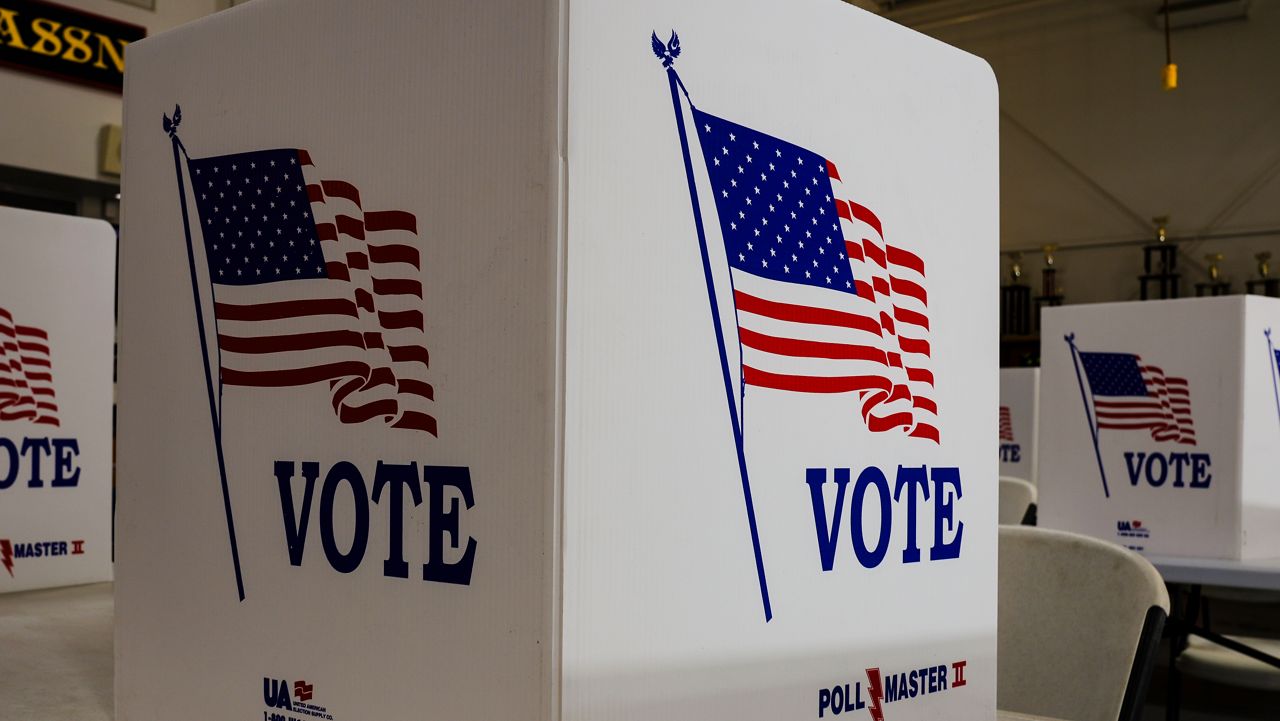ORLANDO, Fla. – A state commission is putting partial blame on Broward County Sheriff's Office and Broward County Public Schools for ignoring warning signs that allowed a then 19-year-old to carry out a mass shooting at Marjory Stoneman Douglas High School last year.
- Parkland school shooting commission releases report
- Report includes findings and recommendations, including arming teachers
- RELATED: Sheriff Gualtieri talks about release of commission report
Members of the state commission empaneled to investigate the mass shooting met by phone Wednesday to approve its first interim report, which is now on the desks of Governor Rick Scott, Governor-elect Ron DeSantis and the incoming legislative leadership.
In the report, the commission recommends lawmakers allow trained and licensed teachers and school staff members to carry firearms while on school property.
The commission was created in direct response to the February 14 attack, and is composed of sheriffs, education leaders, and parents of some of the students killed.
Nikolas Cruz, now 20, is charged with shooting and killing 14 students and 3 staff members.
During a nine-month inquiry, the commission found a series of missed red flags and faults in policies and procedures.
A version of the report spans nearly 500 pages and begins with photos and profiles of each of the 17 people killed in the shooting.
"School safety in Florida needs to be improved," the report states. "We can do more and we can do a better job of ensuring the safety of students and staff on K-12 school campuses. Not all school security changes or enhancements have financial costs, and some only require the will of decision makers to effect change and hold people responsible for implementing best practices. Safety and security accountability is lacking in schools, and that accountability is paramount for effective change if we expect a different result in the future than what occurred at Marjory Stoneman Douglas High School on February 14, 2018."
The commission found that law enforcement and school personnel repeatedly missed warning signs about the gunman's mental and academic state.
There was also wide miscommunication among first responders, including an inability to communicate with one another on radios and distressed callers being sent to the wrong 911 dispatch centers.
Much attention has also been placed on the school's resource officer, former Broward County Sheriff's Deputy Scot Peterson, who is seen in video outside of the school. His actions have been a point of controversy among many who criticized the deputy for not engaging the shooter.
Peterson no longer works for the department and refused to answer the commission's subpoena to answer questions.
The commission's report also includes recommendations that districts harden school security measures and mandate lockdown training for students.
Shortly after the shooting, Florida lawmakers passed a series of bills that include funding for physical school security and mental health treatment. The same set of bills also requires districts to conduct at least one active shooter drill per semester in every K-12 school.
Among the recommendations in the draft report:
- Allow teachers/school staff to carry firearms if they pass a background check and complete training
- Require all schools have assailant procedures in place and conduct regular active shooter drills
- The Legislature should consider a permanent body to oversee physical site security of schools
- Ensure every school creates a "safe zone or hard corner" in an area of a classroom that cannot be seen by someone looking through a window(s).
- Give more staff members authority to declare a "code red"
- Give law enforcement direct access to live video feeds inside schools
- Give law enforcement more access to a student's education/disciplinary records
- Require law enforcement agencies to have communication systems that are compatible
- Require mental health providers release clinical records and require they warn others of threatened harm by a patient
The commission also recommends that additional investigations are conducted looking into the actions of specific individuals including various Broward Sheriff's deputies and educators.
"For this Initial Report, the Commission emphasized two major priorities – what happened leading up to the shooting and the law enforcement response," the report states. "Knowing the truth and accurate facts about all the contributing variables leading up to the massacre of February 14 was crucial for forming a body of knowledge about certain topics."
The commission puts part of the blame on multiple layers missing warning signs about the gunman's mental and behavioral issues.
"The causes include Cruz's mental and behavioral health issues, people not reporting warning signs or reporting signs that were not acted on by those to whom actionable information was reported, and how Cruz's behavior and discipline issues were addressed (or not addressed) by Broward County Public Schools," the report states. "Also contributing, was the overall lack of adequate or effective physical site security and unenforced or non-existent security measures and policies at MSDHS, as well as the ineffective behavior threat assessment process at MSDHS."
"Further contribution to the unsatisfactory law enforcement response, which includes the flawed City of Parkland 911 system and the flawed and failed Broward County law enforcement radio system," the report continues. "The Broward Sheriff's Office's inadequate active assailant response policy, the abysmal response by the school's RSO, a failed response by the some law enforcement officers and supervisors and BSO's flawed unified command and control of the scene were also identified as areas that need to be addressed."
"This is just the beginning and an initial product and we hope it has a substantive impact and helps to move the needle where it needs to go," said Pinellas County Sheriff Bob Gualtieri, chairman of the commission, during Wednesday's phone meeting.
Commissioner Max Schachter, whose son Alex was killed in the attack, believes the first report is progress in helping people understand the lapses and also how and why an act like this could have happened.
"Seventeen families wanted to get to the bottom of what happened February 14 and I think we've done that," Schachter said. "With that said, I think this report is very good product, there are some issues I still want to go into more detail and I know we'll do that in the coming year."
State law allows the commission to continue investigating and developing recommendations until 2023.








